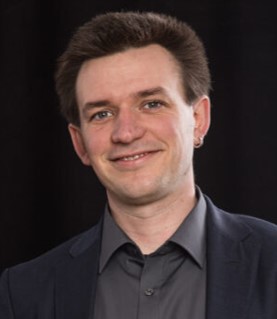Innovation
A special focus of aqua & waste International GmbH is on the development and implementation of innovative solutions aimed at energy efficiency as well as climate and environmental protection. We work closely with universities and various expert committees and working groups, thereby actively promoting developments and continuously incorporating the results into our solutions and services. Furthermore, we transfer our knowledge by actively contributing to further education and conducting seminars and workshops.
Research projects
Due to the historical development of our office and the academic background of many of our employees, we are actively involved in the scientific development as well as practical implementation of innovative approaches and technologies in wastewater and sludge treatment.
Some examples of our research activities are:
| PROJECT | COUNTRY | PERIOD |
| GaVA research project: Holistic utilization of pineapple plants with a focus on pulp production and the development of a wastewater concept including the treatment of side streams | Germany, Costa Rica | 2023 - ongoing |
| KliPro - Climate-friendly process water treatment - process development; BMBF research project | Germany | 2021 - 2022 |
| Municipal climate protection: Network management for sewage sludge disposal in Schleswig-Holstein - a research project by Jülich Municipal Climate Protection | Germany | 2020 - ongoing |
| Development of an anaerobic reactor for the transformation of Hydrogen from electrolysis into methane as alternative storage option for surplus electrical energy from renewable energy – Research project DBU | Germany | 2017 |
| IWAMA – Interactive Water Management; Research project BMBF | Europe | 2016 - 2019 |
| EXPOVAL UV 4 Anaerobic processes - AnaKomA (Anaerobe kommunale Abwasser-reinigung) – Anaerobic municipal wastewater treatment; Research project BMBF | India, Brazil | 2012 - 2016 |
| BiFFiO - Cooperation between the aquaculture and agriculture sectors with the intent to use animal manure and fish faeces for sustainable production and utilization of renewable energy and recovered nutrients | Europe | 2013 - 2016 |
Demonstration projects
To ensure that good ideas do not remain in the drawer, we put technology into practice – Be it innovations, or process technologies that can only have a regionally adapted effect on the environment.
Some examples of our demonstrative projects are:
| PROJECT | COUNTRY | PERIOD |
| Implementation of tests for methane recovery from raw water and developing a concept | Germany | 2023 - ongoing |
| Feasibility study for the establishment of a research and demonstration field for innovative water and wastewater technology at a sewage treatment plant site in the Lausitzer Revier | Germany | 2023 - ongoing |
| Study on future-oriented ideas regarding the energy management at the wastewater treatment plant (WWTP) Lindau | Germany | 2022 - 2023 |
| Planning services for the construction of a large-scale pilot plant for separate process water treatment at the Gümmerwald wastewater treatment plant | Germany | 2021 - 2023 |
| Feasibility Study of Biogas Generation from Sewage Lagoons | Belize | 2022 - 2024 |
| Preparation of an expert report on a technology for CO2 fixation in rocks - review of the operation, efficiency and effectiveness over the water phase | Germany | 2022 |
| Development of an international circular economy strategy for the medical systems of an international company | Germany | 2022 |
| Feasibility study for conceptioning of an equipment strategy for existing plants as a showcase sewage treatment plant for learning purposes in India by applying German technologies in a common context | India | 2020 - 2023 |
| Sustainable and environmentally friendly sludge drying for industrial zones in Ethiopia (SUNSET) - develoPPP GIZ | Ethiopia | 2018 |
Innovative processes and concepts
Innovation can ensure the most sustainable environmental protection. We are therefore working on the following topics, some of which have made the leap into state-of-the-art technology and some of which are still at the conceptual stage:
- Dynamic modelling as a planning and optimisation tool
- A holistic view of energy flows and a practical presentation and consolidation of the analysis – For the benefit of the operators.
- Degassing of digested sludge – Good for the climate and the infrastructure. GHG emissions are avoided and precipitation in pipelines and pumps is prevented.
- Micro-aeration for desulphurisation of sewage gas/biogas: Small amounts of air are introduced into the digester, thereby oxidising H2S. The oxygen content remains far below the hazardous threshold throughout (explosion protection).
- As a compact plant that combines wastewater treatment, sludge stabilisation and anaerobic waste treatment, the H-batch process is a good solution, especially when cost pressure is high.
- Hydrogen as an important energy carrier for the transition to renewable energy systems: It has been a component of the sewage gas at wastewater treatment plants with digester tanks since they were first built. This creates favourable conditions for sewage treatment plants to take on important functions/roles in this energy transition. And this can be done without compromising the main objective, namely wastewater treatment. We are actively working on these concepts.
- Energy-efficient partial flow treatment by means of deammonification is already installed at many wastewater treatment plants. Design, operation and troubleshooting are already part of our regular services & solutions. To ensure that this process takes place with fewer nitrous oxide emissions in the future, we are developing the deammonification process further!
- The droughts of recent years have shown that water is increasingly becoming a scarce commodity, and not only in the arid zones. Therefore, we are working on concepts to address the legal, organisational, and technical issues and to make treated wastewater a resource for agriculture.

Contact

Dr.-Ing. Niklas Trautmann
E-Mail: trautmann@aquawaste.de
Tel.: +49 (0) 511 132 221 82
